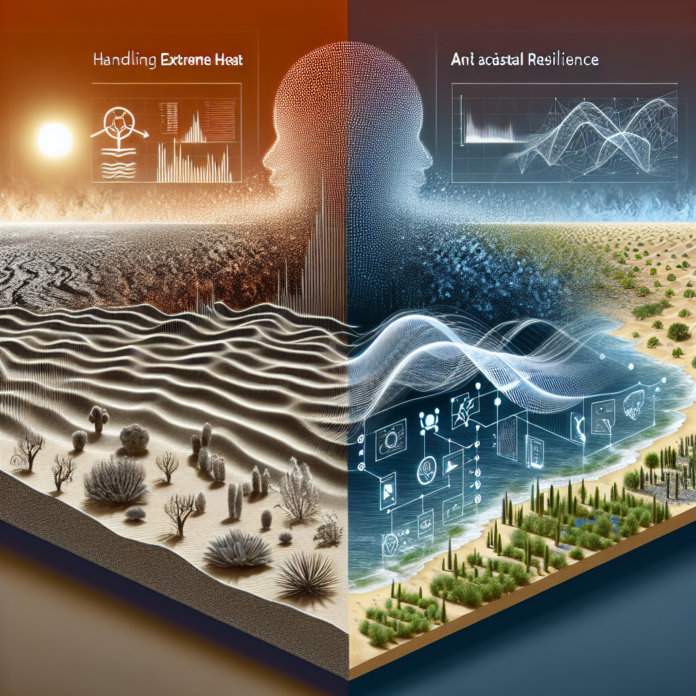Perspectives on Utilizing AI for Tackling Extreme Heat and Enhancing Coastal Resilience
Harnessing AI to Tackle Extreme Heat and Enhance Coastal Resilience
In recent years, the challenges posed by extreme heat and the rising threats of coastal flooding have become increasingly evident. With climate change accelerating these issues, it is imperative to explore innovative solutions. Artificial Intelligence (AI) has emerged as a promising tool to address these pressing environmental challenges.
The Rising Threat of Extreme Heat
Extreme heat events are becoming more frequent and severe, leading to detrimental impacts on public health, agriculture, and infrastructure. Vulnerable populations, including the elderly and those with pre-existing health conditions, are particularly at risk. AI can play a vital role in predicting heat waves and formulating effective response strategies. By analyzing vast amounts of meteorological data, AI algorithms can identify patterns and provide early warnings, allowing communities to prepare and mitigate the impacts of extreme temperatures.
Coastal Resilience in the Face of Rising Sea Levels
As sea levels continue to rise due to climate change, coastal areas are increasingly susceptible to flooding and erosion. This poses significant threats to ecosystems, infrastructure, and local economies. AI can assist in enhancing coastal resilience through advanced modeling and simulation techniques. By integrating data from various sources, including satellite imagery and weather forecasts, AI can help predict storm surges and flooding events, enabling better planning and response.
Smart Urban Planning and Infrastructure Development
The integration of AI in urban planning can lead to the development of smarter, more resilient cities. By analyzing demographic data, climate patterns, and existing infrastructure, AI can assist city planners in making informed decisions about where to build and how to design resilient structures. This proactive approach not only addresses immediate challenges but also prepares communities for future climate impacts.
Community Engagement and Education
AI can also facilitate community engagement and education regarding climate resilience. Through interactive platforms and predictive analytics, communities can be informed about potential risks and the steps they can take to protect themselves. Empowering citizens with knowledge is crucial for fostering a culture of resilience, where individuals and communities work together to adapt to changing conditions.
Collaborative Efforts and Policy Implications
Addressing extreme heat and coastal resilience requires collaboration between government, industry, and academia. Policymakers must prioritize investments in AI technologies and support research initiatives that focus on climate adaptation. Additionally, fostering partnerships between public and private sectors can lead to innovative solutions that leverage AI for community benefit.
Conclusion
As we face the growing challenges of extreme heat and coastal vulnerability, it is essential to harness the potential of AI to create adaptive and resilient strategies. By utilizing data-driven insights, enhancing urban planning, and engaging communities, we can work towards a sustainable future that mitigates the effects of climate change. The integration of AI in these efforts not only holds promise for immediate responses but also for long-term resilience in the face of an uncertain climate.


